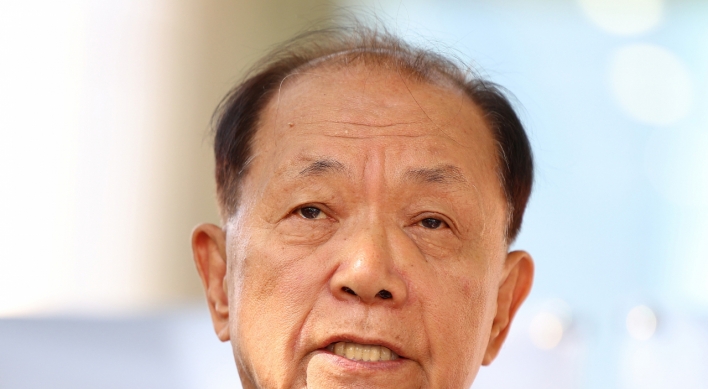About 130 senior N. Korean officials visit border village
By Korea HeraldPublished : March 14, 2012 - 19:31
About 130 senior North Korean officials visited the border village of Panmunjom last week as the communist country ratcheted up militaristic rhetoric against South Korea, a South Korean military official said Wednesday.
The trips came days after their new leader Kim Jong-un placed his troops in Panmunjeom on alert during his surprise inspection trip to the village straddling the heavily armed inter-Korean border on March 3.
Kim, who took over the communist country following the December death of his father Kim Jong-il, has made frequent trips to military units whose support is seen as key to his consolidation of power.
North Korean Defense Minister Kim Yong-chun and Ri Yong-ho, the chief of the General Staff of the Korean People’s Army, toured the village on March 4, the South Korean military official said, without elaborating.
He also said mid-ranking North Korean officials have since traveled to the border village and vehicles carrying oil, food and other supplies were spotted in the area. He spoke on condition of anonymity, citing policy.
A South Korean defense ministry official said the North’s move could be aimed at modernizing its military facilities in the border village, located inside a 4-kilometer-wide military buffer zone separating the two Koreas.
The development came as North Korea has repeatedly threatened to launch a “sacred” war against South Korea over Seoul’s defamation of the dignity of the North’s new leader Kim Jong-un and his late father, Kim Jong-il.
A South Korean military unit in Incheon, a port west of Seoul, has posted photos of the two Kims inside a barracks with accompanying text that translates as, “Let’s beat Kim Jong-il to death! Let’s strike Kim Jong-un to death!”
South Korea has brushed off the North’s war rhetoric and warned of a powerful retaliation against North Korea if provoked again.
South and North Korea remain technically at war after the 1950-53 Korean War ended in a truce, not a peace treaty.
(Yonhap News)
The trips came days after their new leader Kim Jong-un placed his troops in Panmunjeom on alert during his surprise inspection trip to the village straddling the heavily armed inter-Korean border on March 3.
Kim, who took over the communist country following the December death of his father Kim Jong-il, has made frequent trips to military units whose support is seen as key to his consolidation of power.
North Korean Defense Minister Kim Yong-chun and Ri Yong-ho, the chief of the General Staff of the Korean People’s Army, toured the village on March 4, the South Korean military official said, without elaborating.
He also said mid-ranking North Korean officials have since traveled to the border village and vehicles carrying oil, food and other supplies were spotted in the area. He spoke on condition of anonymity, citing policy.
A South Korean defense ministry official said the North’s move could be aimed at modernizing its military facilities in the border village, located inside a 4-kilometer-wide military buffer zone separating the two Koreas.
The development came as North Korea has repeatedly threatened to launch a “sacred” war against South Korea over Seoul’s defamation of the dignity of the North’s new leader Kim Jong-un and his late father, Kim Jong-il.
A South Korean military unit in Incheon, a port west of Seoul, has posted photos of the two Kims inside a barracks with accompanying text that translates as, “Let’s beat Kim Jong-il to death! Let’s strike Kim Jong-un to death!”
South Korea has brushed off the North’s war rhetoric and warned of a powerful retaliation against North Korea if provoked again.
South and North Korea remain technically at war after the 1950-53 Korean War ended in a truce, not a peace treaty.
(Yonhap News)
-
Articles by Korea Herald






![[KH Explains] No more 'Michael' at Kakao Games](http://res.heraldm.com/phpwas/restmb_idxmake.php?idx=644&simg=/content/image/2024/04/28/20240428050183_0.jpg&u=20240428180321)











![[Herald Interview] Mistakes turn into blessings in street performance, director says](http://res.heraldm.com/phpwas/restmb_idxmake.php?idx=652&simg=/content/image/2024/04/28/20240428050150_0.jpg&u=20240428174656)
